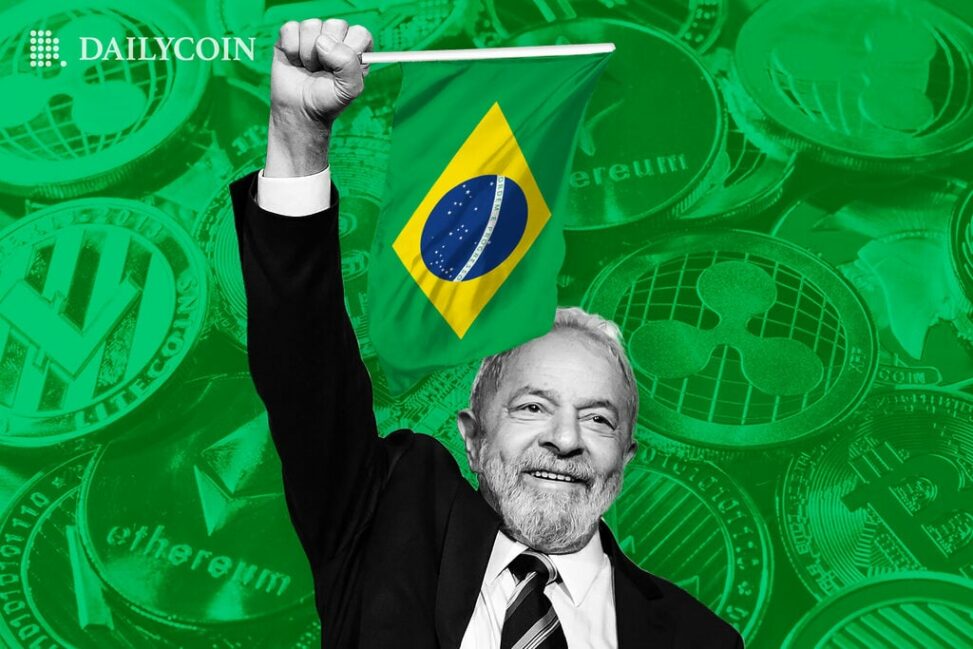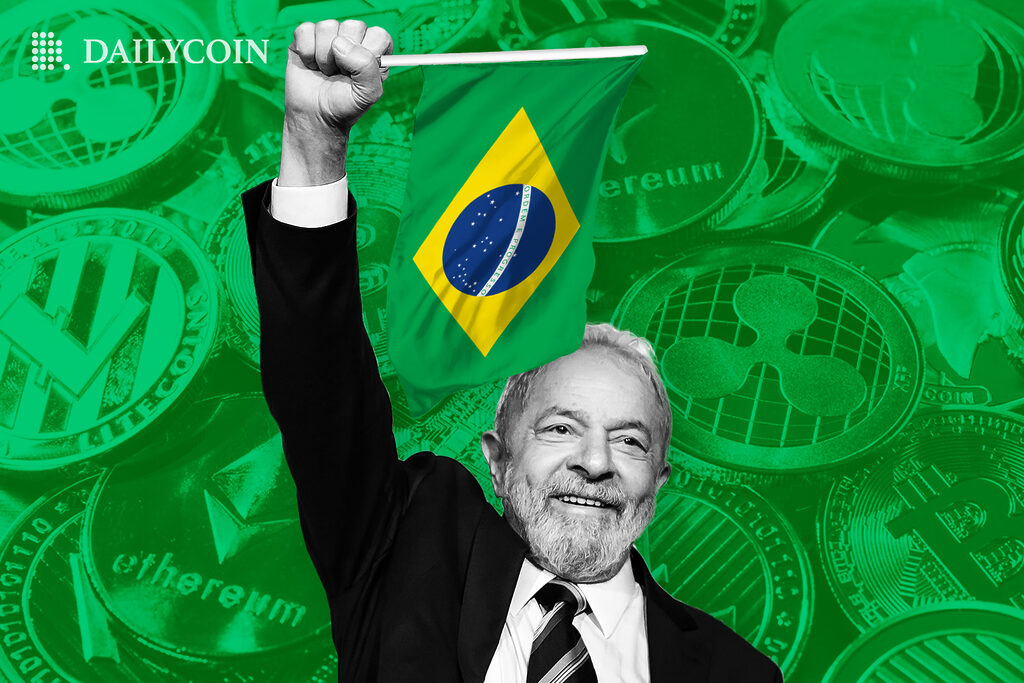- The winning candidate of the Workers’ Party believes digital assets should be regulated by the Central Bank.
- Lula Da Silva, who won a very close vote on Sunday, will have to negotiate any regulatory initiative with President Jair Bolsonaro’s Liberal Party.
Financial markets in the United States and Europe reacted immediately to the victory of leftist candidate Luiz Inácio Lula Da Silva in the second round of the Brazilian presidential elections over President Jair Bolsonaro.
Though favored to win, the Workers’ Party candidate’s victory sent Brazil’s EWZ ETF tumbling 5%, while Petrobras’ ADRs plunged nearly 10% in Monday’s NYSE premarket, according to local data from Infomoney.
Investor sentiment is geared towards an adjustment of portfolios in the face of possible scenarios related to greater government intervention in state-owned companies.
We still await further signals regarding the economic policy that Lula will follow and the names of those who will accompany him in guiding Brazil’s economy. A name that could appease the markets is that of former Central Bank president and finance minister, Henrique Meirelles.
However, according to what was expressed by Lula during the election campaign, the new government is expected to exercise greater control over the growing cryptocurrency market, and crypto regulation is expected to be on the economic agenda.
Lula believes that digital assets should be regulated due to their enormous growth in recent times and that their regulation should be in the hands of the Central Bank. The Brazilian issuer has not exactly been enthusiastic about cryptocurrency, viewing it as a very high-risk speculative asset.
“The government, especially through its autonomous Central Bank, must create regulations aligned with the international standard to avoid illegal practices that can make use of crypto assets, such as money laundering and currency evasion, in addition to avoiding fraudulent trading practices”, Lula said recently.
Additionally, during the election campaign Lula stated that the federal government should have the role of “monitoring the impact of the crypto market on the health of the financial system,” though he provided no details on what this process would involve.
Digital Real and South American Common Currency
Along with other political leaders of the Latin American left, Lula is one of the main promoters of initiatives leading to the breaking of dependence on the dollar across the region.
In his first government, Lula supported the project to create the Sucre launched by the then Venezuelan president, Hugo Chávez. The project for a common South American currency similar to the euro failed quickly due to problems in its implementation and corruption scandals associated with fictitious imports from Venezuela involving the currency.
Now the president-elect of Brazil is reviving the project with the launch of a common currency called SUR. Until now, Lula has not explained how this regional currency would be issued or who would be its future partner countries.
Brazil is presently working on the development of the digital Real, aimed at improving payment systems and financial inclusion. The CBDC project is currently in the pilot phase for its issuance.
On the Flipside
- The regulatory framework for cryptocurrencies and other digital assets in Brazil, approved by the Federal Senate last May, is awaiting review and approval in the Chamber of Deputies.
Bolsonaro’s Liberal Party, defeated narrowly by Lula, has a majority in the Brazilian Congress. Any regulatory initiative of the government in terms of cryptocurrencies this or next year must have the approval of the supporters of President Bolsonaro, who will remain in office until January.
Lula correspondingly has veto power over the laws approved in the Brazilian Congress. Both sectors will be required to negotiate the definitive cryptocurrency regulatory framework that the country decides to adopt.
If Henrique Meirelles, a current member of the Binance Global Council, is brought into Lula’s Cabinet, the government will surely adopt a more flexible and friendly attitude towards cryptocurrency trading in the country.
Meirelles recently ruled out that the central bank is thinking of monopolizing the digital currency market with the issuance of the digital Real.
Why You Should Care
- Brazil is both the largest cryptocurrency market in Latin America and the biggest economy in the region.
- Any regulatory decision that the country makes on the trade of crypto assets, the issuance of a CBDC or a common Latin American currency, will have a strong impact on the rest of Latin America.
More articles related to this topic can be found at the following links:
Brazil Could Become the Largest Bitcoin Regulator in Latin America
CBDCs, Latin America, Policy, Regulations, zz_index, zz_popular, zz_top, ZZZ Editors’ Picks, ZZZ Native, Brazil, Brazilian Crypto Industry, Luiz Inácio Lula Da SilvaRead More



